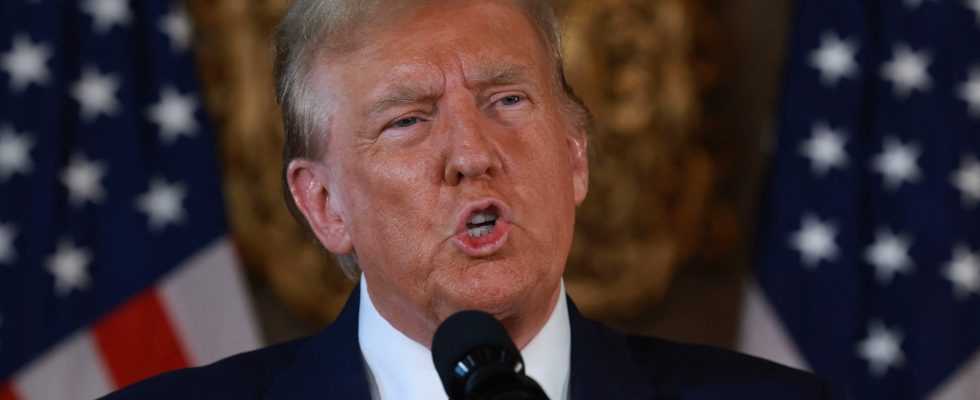“See dire”: it is an expression from Old French which governs a decisive phase of the trial in the United States, the selection of the jury. From their address, profession or family status to possible links with the accused or his opponents, the jurors in Donald Trump’s trial will have to answer a battery of questions. The objective of this “voir dire” process (literally “to tell the truth”) is to select 12 jurors and six alternates for this trial which begins this Monday, April 15, scheduled to last until the end of May.
Hundreds of Manhattan residents, drawn at random, received summons to appear in court on Monday. Contrary to practice, for logistical reasons, Judge Juan Merchan announced on April 8 that potential jurors who declared themselves incapable of attending the entire duration of the trial or of being impartial would be exempted without having to provide justification.
The others will have to answer a series of generic questions relating to their neighborhood, their professional and family situation, their level of education, but also more targeted ones, such as “have you ever attended a Donald Trump campaign rally?” or, on the contrary, “at a gathering of an anti-Trump movement or organization?” They will also have to specify how they obtain information, if they have an opinion on the way in which Donald Trump is treated in this matter or on the impact on their impartiality of his status as candidate in the presidential election in November.
Names kept secret
The constitution of the jury promises to be more complicated than usual. Judge Merchan has already ruled that the names will be kept secret due to the “likelihood of bribery, jury manipulation, physical harm or harassment.”
This week he rejected a series of appeals from the former Republican president’s lawyers, including a request for a change of scenery from the trial on the grounds that he could not benefit from a fair jury in a city which votes overwhelmingly Democratic.
But the judge emphasized in an April 8 letter that “contrary to the defense’s arguments, the purpose of jury selection is not to determine whether a potential juror likes or dislikes one of the parties.” Rather, he explained, it is a question of whether that juror “can guarantee that he or she will put aside any personal feelings or biases to make a decision based on the evidence and the law.”
